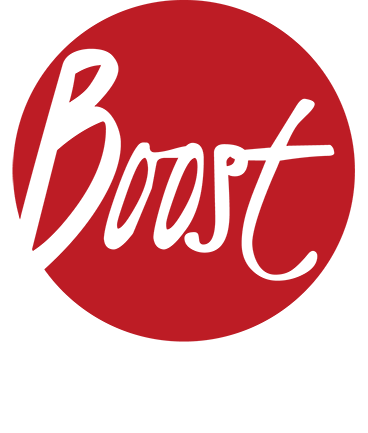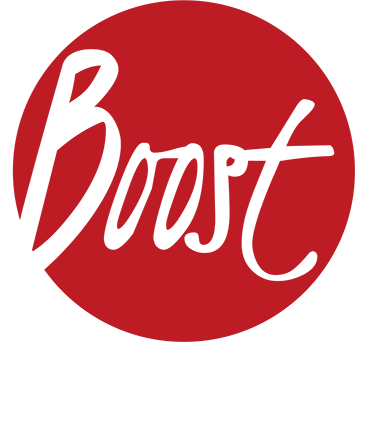Excellence in action: Behind the scenes at the Princess Royal Training Awards
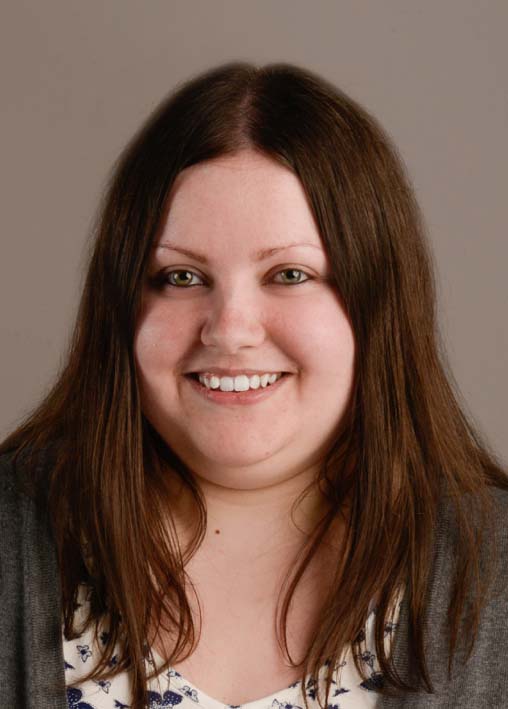
Rebecca Carpenter
Managing Consultant, Boost Awards
For over a decade, the Princess Royal Training Awards has recognised organisations that use training and development to deliver positive change. Each year, applicants from across sectors, from major multinationals to small charities, demonstrate how investing in people benefits both their people and their organisations.
Now, after celebrating the Awards’ tenth anniversary, the programme continues to evolve. One of the biggest steps forward comes in 2026, with the introduction of a new eligibility route for UK and Ireland-based organisations delivering international training programmes. This exciting development demonstrates the Awards growth in scope and ambition.
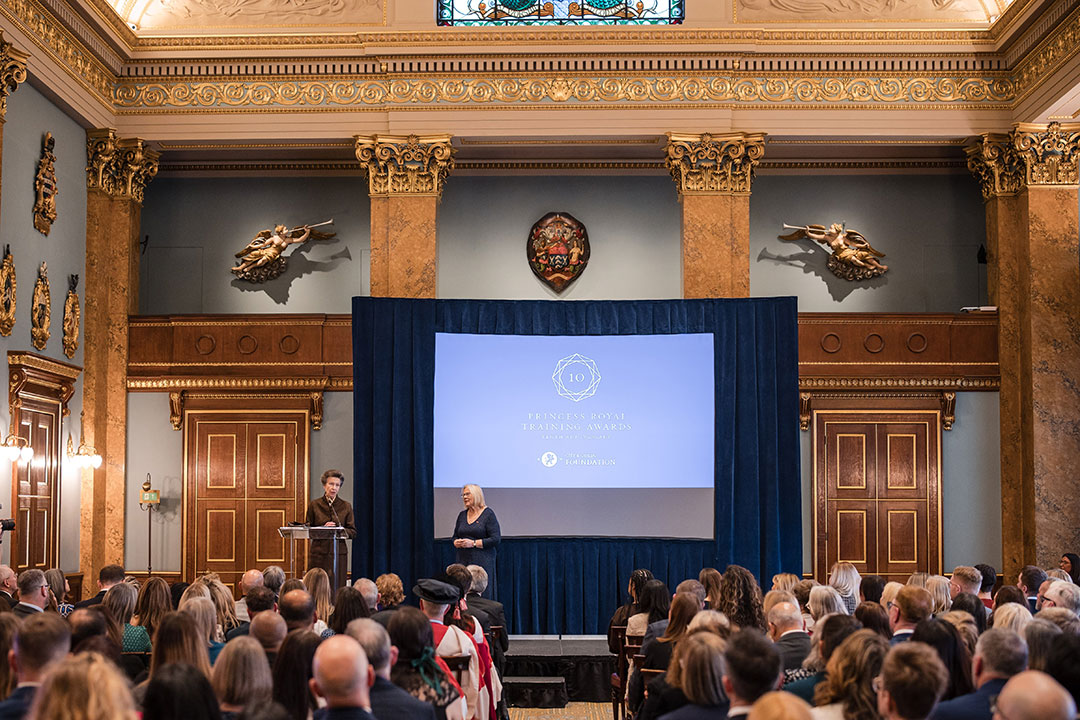
To understand what it means, and to explore how the Awards operate behind the scenes, we spoke with the Chief Assessor of the Princess Royal Training Awards, Fenella Tallon, and the Awards Manager, Lan Che.
Meet the team
Both Fenella and Lan play key roles in shaping and delivering the Awards, providing expert insight into what makes an application stand out and how the programme runs behind the scenes. Fenella joined the Assessor team when the Awards were launched in 2016 and brings extensive experience in education, learning management and assessment, having previously served as an Assessor for the National Training Awards and Apprenticeship Awards.
Lan Che, Awards Manager, has been with the Foundation since 2016 and leads the delivery of the Princess Royal Training Awards. She manages project timelines, Assessor schedules, marketing and the annual Award Ceremony, whilst also supporting applicants through workshops. Together, Fenella and Lan share important insights into the assessment process, what makes an application stand out and key developments in the journey of the Awards.
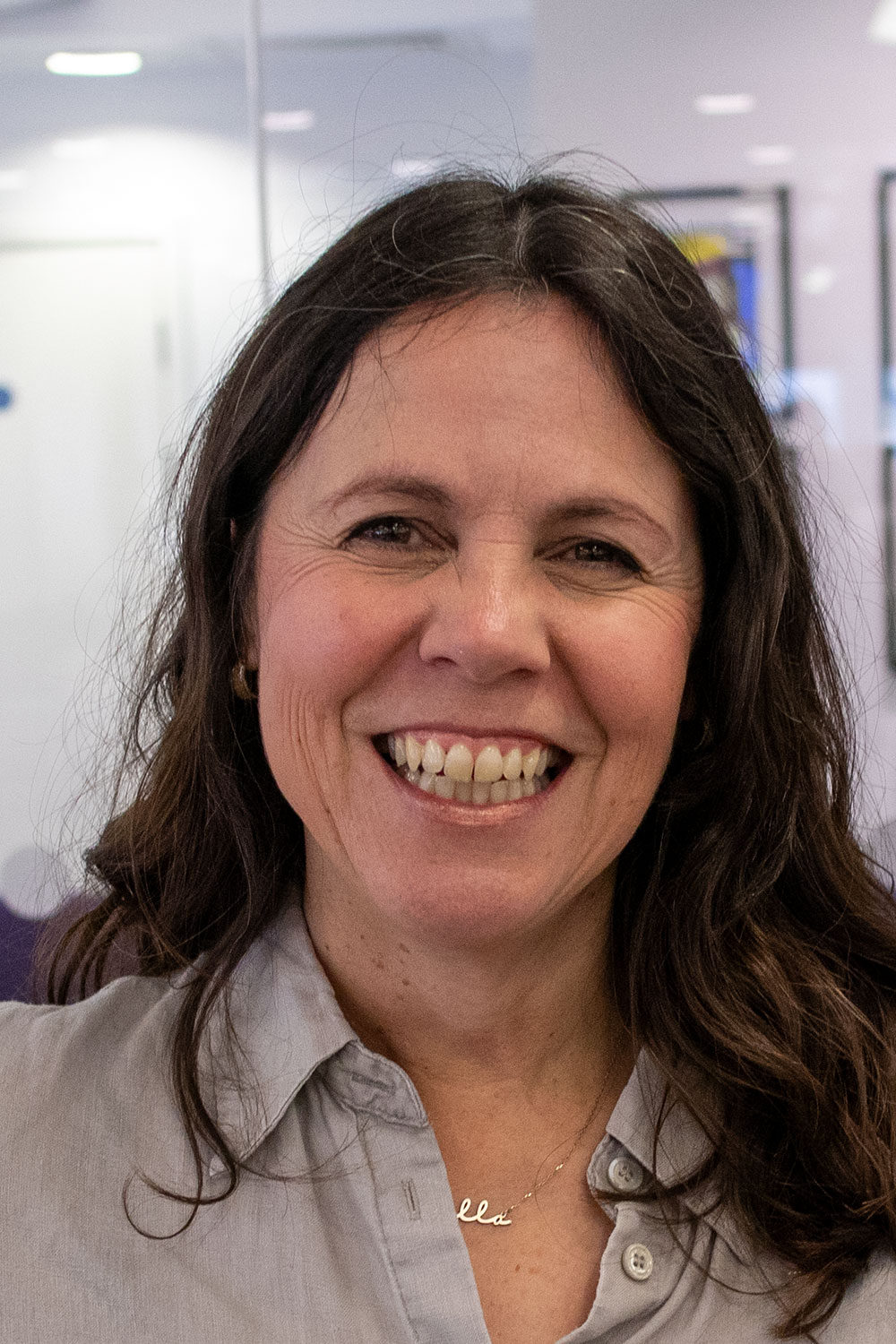
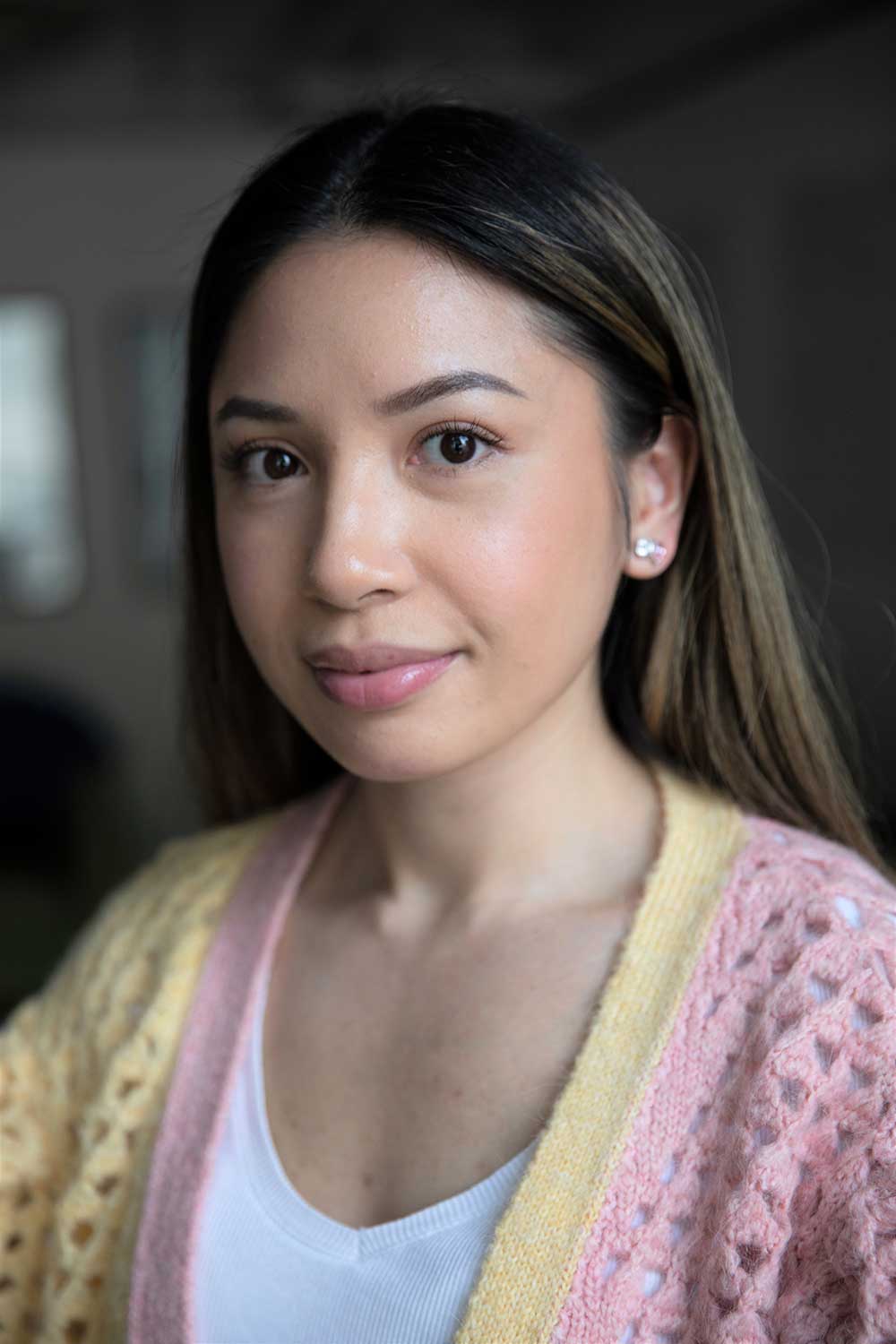
How the assessment process works
There are two stages to the assessment process: reviewing written applications and visiting organisations that progress to the next stage. Each application is assessed and moderated, with the Chief Assessor and senior members of the team reviewing all applications. Every application is assessed against a clear, structured set of criteria designed to help organisations articulate the need for their training, how it was delivered and the impact it achieved.
Assessors review each submission, scoring the applications against the criteria before deciding whether or not the application should progress to the next stage. As Fenella explains, the Awards’ three hallmarks of excellence are at the heart of the process:
“Hallmark 1 focuses on the ‘why’, examining why applicants chose training, learning and development to address a challenge or opportunity. Hallmark 2, the ‘how’, delves into the mechanics of training design and implementation, and Hallmark 3, the ‘so what’, hones in on the impact on individuals and the organisation.”
Applicants must also demonstrate how they share best practice and include a senior manager’s endorsement. The Assessors evaluate the application as a whole, as well as reviewing each section, to consider its overall merit.
Assessment visit days are a critical part of the Awards process, giving Assessors the opportunity to meet a wide cross-section of staff, learners and leaders. These in-depth conversations bring the training programme to life, offering a clear picture of how it operates in practice and how it is experienced across the organisation. For Fenella:
“During the visits, Assessors get to ask people directly how the training has helped them, which is the highlight of the process. These conversations often reveal the most powerful evidence of impact and the parts that numbers alone cannot demonstrate.”
Innovation in action: programmes that stand out
Over the years, a number of applications have left a lasting impression on the Awards team. Fenella highlights Macmillan Caring Locally’s inventive volunteer programme in 2017 which enabled the organisation to cope with increased referrals without hiring more staff. This led to another inspiring programme which achieved an Award several years later:
“In 2023, the programme leader applied again with a different charity, the Ancient Technologies Volunteer Association, a charity preserving a historical site spanning from the Stone Age to Viking era. Facing budget cuts, they developed a three-year strategy focusing on volunteer recruitment, training, and knowledge-sharing. This led to incredible results, with volunteer numbers tripling from 15 to 48 and the site achieving its highest revenue year to date.”
For Lan, one particularly memorable programme came from HX Hurtigruten Expeditions, whose polar bear safety training stood out for its originality and purpose:
“Imagine guiding guests in the Arctic where polar bears roam freely! This small-ship adventure company invested in creative, scenario-based learning to prepare guides for Arctic tours. Now every expedition offers safe, respectful wildlife experiences. It’s a brilliant example of training that protects people, wildlife, and the planet.”
These cases demonstrate how memorable applications often involve more than using training to solve a problem, going further to transform an organisation’s culture and deliver lasting change.
Growing the alumni community
The alumni network has grown into an active, supportive community that plays a key role in shaping the future of the Awards. To increase opportunities to connect, the City & Guilds Foundation introduced a new series of skills share events, designed to bring together Award recipients, allowing for insights to be exchanged and best practice to be shared. Fenella commented on the first event, stating that it:
“… was a huge success and attracted over 100 people. Hearing people share their stories and having a focus on hot topics like supporting neurodiverse learners was so inspiring. And of course, having the Princess Royal in attendance and listening to participants share their transformative training journeys adds a special touch.”
The success of this debut event carried through to the second skills share event in April 2025, where 130 Award recipients came together at Goldsmiths’ Hall in London to share, learn, inspire and reflect on the value of investment in skills.
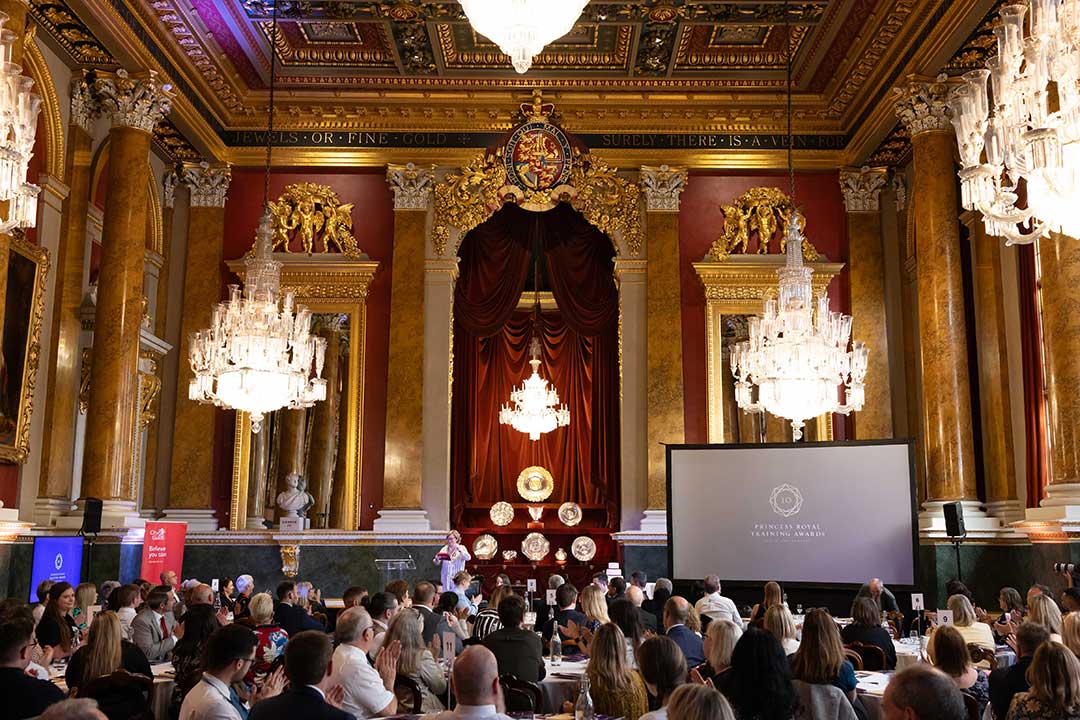
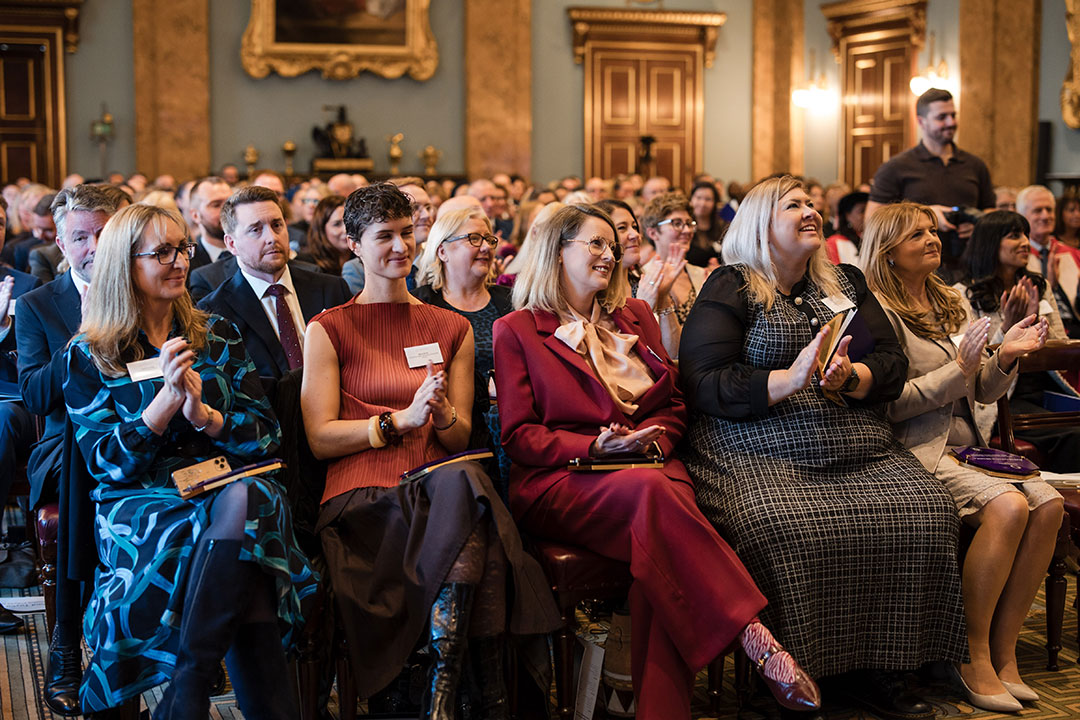
Beyond events and networking, alumni are increasingly stepping forward to help new applicants strengthen their submissions and articulate their impact more confidently. This was evidenced in 2025 with the trial of a new applicant coaching programme, pairing a previous Award recipient with new applicants. The pilot received overwhelmingly positive feedback, saw two applicants achieve Award success and has now been expanded for selected 2026 applicants.
The applicant coaching offer builds on the Awards’ already extensive support package, including workshops, ‘tea and chat’ sessions, Assessor feedback on drafts, calls and webchat, all of which are highly praised by applicants:
“What was really beneficial was just the amount of support that the Princess Royal Training Awards team provide. I made sure that we joined all the tea & chat sessions, I had one of my team members go along to the in-person session in Dublin, and something I would urge everyone to do is get your draft in, even if it isn’t the final draft you’d like to submit.” – 2024 Award recipient.
New for 2026: International training programmes eligible
As workforce development becomes ever more global, the Awards are evolving to recognise excellence wherever it is delivered. UK and Ireland-based organisations with international training programmes will now be eligible to apply, acknowledging the powerful impact many have beyond their home country. For Lan, this is an exciting new chapter for the Awards:
“For the first time, we’re throwing our doors wide open to organisations applying with global training programmes. Excellence in learning knows no borders – so if your base is in London or Ireland but your impact reaches beyond, we want to celebrate you!”
This expansion represents an important evolution of the Awards, acknowledging the wider reach and influence of training programmes. The change has already been met with clear enthusiasm from organisations ready to highlight the positive impact of their international training programmes.
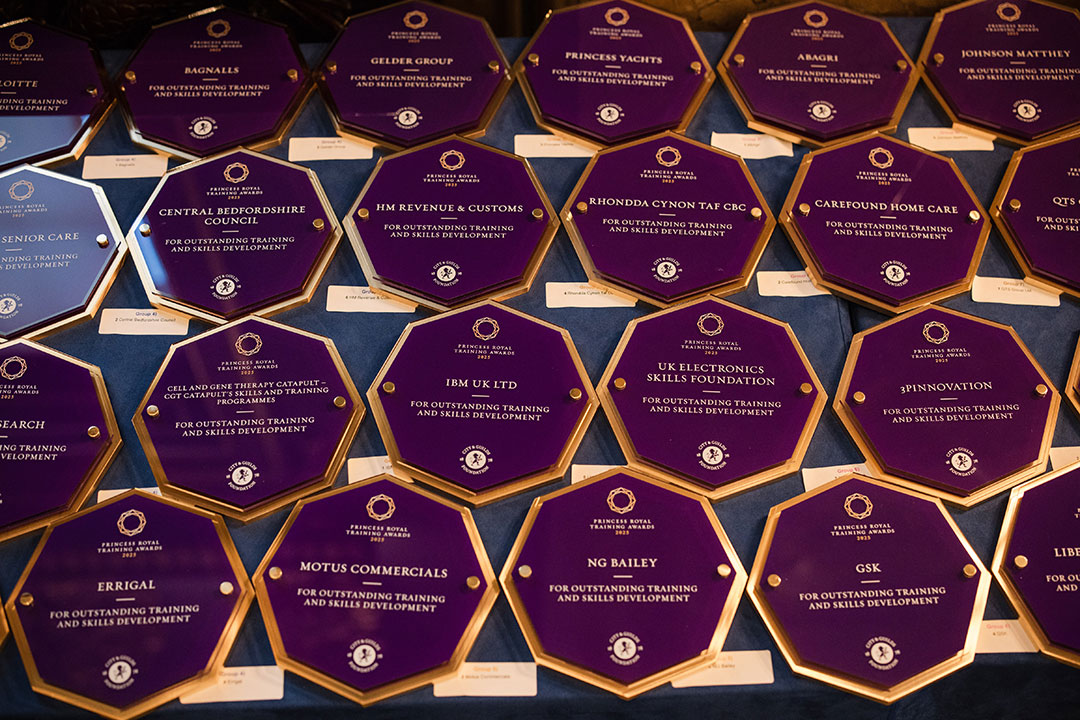
Apply today and celebrate impact
With enhanced support, an active Alumni community and the opportunity for UK and Ireland-based organisations to gain recognition for their international programmes, the Awards offer a platform to reflect on and share the difference that training makes. For organisations keen to get started, Lan shares her top tip:
“Don’t just think about the Award, think about what you’ll learn along the way. The application process is like holding up a mirror to your organisation. It gives you the chance to assess the real impact of the people who’ve grown, the ideas that have taken off, and the culture that’s stronger because of your training.”
If your organisation is making a difference through training, why not apply today and share your story with the Awards. Applications are open until 20th March 2026.
Useful links:
Find out more: The Princess Royal Training Awards website
Register or apply
2025 recipients
Support options
Boost’s award writing services https://boost-awards.co.uk/
Excellence in action: Behind the scenes at the Princess Royal Training Awards

Rebecca Carpenter
Managing Consultant, Boost Awards
For over a decade, the Princess Royal Training Awards has recognised organisations that use training and development to deliver positive change. Each year, applicants from across sectors, from major multinationals to small charities, demonstrate how investing in people benefits both their people and their organisations.
Now, after celebrating the Awards’ tenth anniversary, the programme continues to evolve. One of the biggest steps forward comes in 2026, with the introduction of a new eligibility route for UK and Ireland-based organisations delivering international training programmes. This exciting development demonstrates the Awards growth in scope and ambition.

To understand what it means, and to explore how the Awards operate behind the scenes, we spoke with the Chief Assessor of the Princess Royal Training Awards, Fenella Tallon, and the Awards Manager, Lan Che.
Meet the team
Both Fenella and Lan play key roles in shaping and delivering the Awards, providing expert insight into what makes an application stand out and how the programme runs behind the scenes. Fenella joined the Assessor team when the Awards were launched in 2016 and brings extensive experience in education, learning management and assessment, having previously served as an Assessor for the National Training Awards and Apprenticeship Awards.
Lan Che, Awards Manager, has been with the Foundation since 2016 and leads the delivery of the Princess Royal Training Awards. She manages project timelines, Assessor schedules, marketing and the annual Award Ceremony, whilst also supporting applicants through workshops. Together, Fenella and Lan share important insights into the assessment process, what makes an application stand out and key developments in the journey of the Awards.


How the assessment process works
There are two stages to the assessment process: reviewing written applications and visiting organisations that progress to the next stage. Each application is assessed and moderated, with the Chief Assessor and senior members of the team reviewing all applications. Every application is assessed against a clear, structured set of criteria designed to help organisations articulate the need for their training, how it was delivered and the impact it achieved.
Assessors review each submission, scoring the applications against the criteria before deciding whether or not the application should progress to the next stage. As Fenella explains, the Awards’ three hallmarks of excellence are at the heart of the process:
“Hallmark 1 focuses on the ‘why’, examining why applicants chose training, learning and development to address a challenge or opportunity. Hallmark 2, the ‘how’, delves into the mechanics of training design and implementation, and Hallmark 3, the ‘so what’, hones in on the impact on individuals and the organisation.”
Applicants must also demonstrate how they share best practice and include a senior manager’s endorsement. The Assessors evaluate the application as a whole, as well as reviewing each section, to consider its overall merit.
Assessment visit days are a critical part of the Awards process, giving Assessors the opportunity to meet a wide cross-section of staff, learners and leaders. These in-depth conversations bring the training programme to life, offering a clear picture of how it operates in practice and how it is experienced across the organisation. For Fenella:
“During the visits, Assessors get to ask people directly how the training has helped them, which is the highlight of the process. These conversations often reveal the most powerful evidence of impact and the parts that numbers alone cannot demonstrate.”
Innovation in action: programmes that stand out
Over the years, a number of applications have left a lasting impression on the Awards team. Fenella highlights Macmillan Caring Locally’s inventive volunteer programme in 2017 which enabled the organisation to cope with increased referrals without hiring more staff. This led to another inspiring programme which achieved an Award several years later:
“In 2023, the programme leader applied again with a different charity, the Ancient Technologies Volunteer Association, a charity preserving a historical site spanning from the Stone Age to Viking era. Facing budget cuts, they developed a three-year strategy focusing on volunteer recruitment, training, and knowledge-sharing. This led to incredible results, with volunteer numbers tripling from 15 to 48 and the site achieving its highest revenue year to date.”
For Lan, one particularly memorable programme came from HX Hurtigruten Expeditions, whose polar bear safety training stood out for its originality and purpose:
“Imagine guiding guests in the Arctic where polar bears roam freely! This small-ship adventure company invested in creative, scenario-based learning to prepare guides for Arctic tours. Now every expedition offers safe, respectful wildlife experiences. It’s a brilliant example of training that protects people, wildlife, and the planet.”
These cases demonstrate how memorable applications often involve more than using training to solve a problem, going further to transform an organisation’s culture and deliver lasting change.
Growing the alumni community
The alumni network has grown into an active, supportive community that plays a key role in shaping the future of the Awards. To increase opportunities to connect, the City & Guilds Foundation introduced a new series of skills share events, designed to bring together Award recipients, allowing for insights to be exchanged and best practice to be shared. Fenella commented on the first event, stating that it:
“… was a huge success and attracted over 100 people. Hearing people share their stories and having a focus on hot topics like supporting neurodiverse learners was so inspiring. And of course, having the Princess Royal in attendance and listening to participants share their transformative training journeys adds a special touch.”
The success of this debut event carried through to the second skills share event in April 2025, where 130 Award recipients came together at Goldsmiths’ Hall in London to share, learn, inspire and reflect on the value of investment in skills.

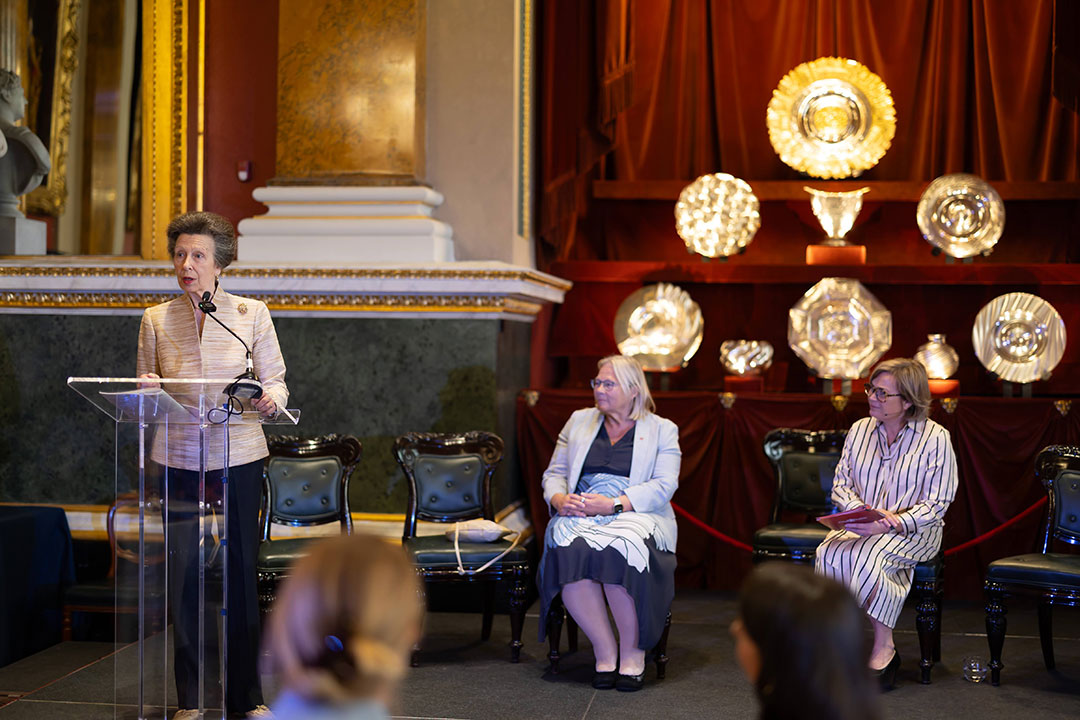
Beyond events and networking, alumni are increasingly stepping forward to help new applicants strengthen their submissions and articulate their impact more confidently. This was evidenced in 2025 with the trial of a new applicant coaching programme, pairing a previous Award recipient with new applicants. The pilot received overwhelmingly positive feedback, saw two applicants achieve Award success and has now been expanded for selected 2026 applicants.
The applicant coaching offer builds on the Awards’ already extensive support package, including workshops, ‘tea and chat’ sessions, Assessor feedback on drafts, calls and webchat, all of which are highly praised by applicants:
“What was really beneficial was just the amount of support that the Princess Royal Training Awards team provide. I made sure that we joined all the tea & chat sessions, I had one of my team members go along to the in-person session in Dublin, and something I would urge everyone to do is get your draft in, even if it isn’t the final draft you’d like to submit.” – 2024 Award recipient.
New for 2026: International training programmes eligible
As workforce development becomes ever more global, the Awards are evolving to recognise excellence wherever it is delivered. UK and Ireland-based organisations with international training programmes will now be eligible to apply, acknowledging the powerful impact many have beyond their home country. For Lan, this is an exciting new chapter for the Awards:
“For the first time, we’re throwing our doors wide open to organisations applying with global training programmes. Excellence in learning knows no borders – so if your base is in London or Ireland but your impact reaches beyond, we want to celebrate you!”
This expansion represents an important evolution of the Awards, acknowledging the wider reach and influence of training programmes. The change has already been met with clear enthusiasm from organisations ready to highlight the positive impact of their international training programmes.

Apply today and celebrate impact
With enhanced support, an active Alumni community and the opportunity for UK and Ireland-based organisations to gain recognition for their international programmes, the Awards offer a platform to reflect on and share the difference that training makes. For organisations keen to get started, Lan shares her top tip:
“Don’t just think about the Award, think about what you’ll learn along the way. The application process is like holding up a mirror to your organisation. It gives you the chance to assess the real impact of the people who’ve grown, the ideas that have taken off, and the culture that’s stronger because of your training.”
If your organisation is making a difference through training, why not apply today and share your story with the Awards. Applications are open until 20th March 2026.
Useful links:
Find out more: The Princess Royal Training Awards website
Register or apply
2025 recipients
Support options
Boost’s award writing services https://boost-awards.co.uk/



